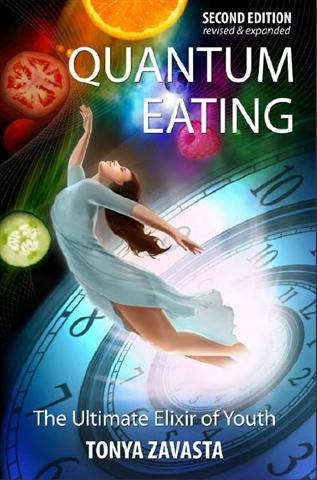Raw Food Lifestyle in a Cold Climate: Testimonial of the Month

Raya Johansson from Montana writes: Tonya, you say: “Many people comment on how difficult it can be to follow a raw food lifestyle in a cold climate.” Now, fortunately, I can say that hasn’t been my experience.
My husband and I are originally from Finland—cold climate people from the get-go—so we somehow just naturally know how to deal with such things. Eating 100% raw in a cold climate is actually not hard at all. But you need to learn a secret. Here’s what I tell people in my raw food group …
Warm versus cooked food … Here we’re caught on the horns of a dilemma. One horn: raw foodists and all the healing that’s taken place with raw eating. The other: the macrobiotic claims that you have to cook all your food to help the spleen. But a thought … if the spleen really does need warm food, why jump to the conclusion that it has to be cooked? That is a big misconception. When you cook food, do you eat it at a boiling temperature? No—you let the food cool down to 110° F or so. At that temperature, it feels warm, but does not burn your mouth.
Why, then, did we ever need to cook our food in the first place, if just 110° F is a good eating temperature? Just because the culture said so! Here’s what we do now—“we” being I and my formerly macrobiotic cook-husband. Over five long cold Montana winters—5 ½ years of 100% raw foods—we have warmed our food to 105 - 110 degrees using double boilers.
In the case of plain fruit, we’ve put the fruit into 110° F water for 15 to 20 minutes until the whole apple, pear, banana, grapes, persimmon or what have you is completely warm. We also have a good, temperature-controlled skillet that we adjust to 110 degrees so that at any time we can warm our fruit, or use it to warm our salad bowls. To keep our food warm throughout mealtimes, we’ll bring our double boiler near the table, its hot water continuing to keep food warm.
We make raw soups in our Vita Mix blender, finding that it actually nicely warms the food when we let it run a little while. We also put our raw soup in the double boiler to keep it warm while eating. We drink warm water only, always just above 100 degrees, like everything else. That is very important—we start our day by drinking 110° F water right away upon awakening.
When we make fresh juice, that goes to the warm water bath, too. In wintertime, we put nothing in our mouths that is below body temperature. Room temperature, you should realize, is roughly 30 degrees F lower than body temperature, so in wintertime don’t take any food or drink that is at room temperature. The liver has to make up the difference. The key for living in a cold climate and being able to eat all raw is to eat warm, raw, living foods. The temperature of the warming water is about right when you can keep your hand in the water without your hand feeling a burn.
Food warmed to that range of temperature hasn’t yet been heated enough to begin destroying its enzymes. Go higher, though, and you’ll begin to lose food value. Just as when a fever goes over 107 degrees, the brain starts to coagulate and the body to die, the same happens with our food—at higher temperatures, it dies and denaturalizes. Cooking creates chemicals that the body cannot use, and thus lots of waste material for the body to handle. Cooking destroys important food enzymes. (There are many scientific studies about this fact, starting with Kouchakoff’s in the 1930s. Go and Google him.)
It's a misunderstanding, that in order for food to be warm it has to be cooked first, has led the macrobiotics believe that you have to cook your food in order for our spleen and digestive system to work properly. But in truth, there’s simply no need to cook at all, so long as what we eat is in the 105 to 110° F range. The Vita Mix blender or any other 2-horsepower blender can make food as nice thick, warm, pudding-like texture, good tasting, and easily digested. Years of experience prove it! We can find love, life and light in our food, without heating the life out of it! — Raya Johansson, Montana, rayanjan@wispwest.net

